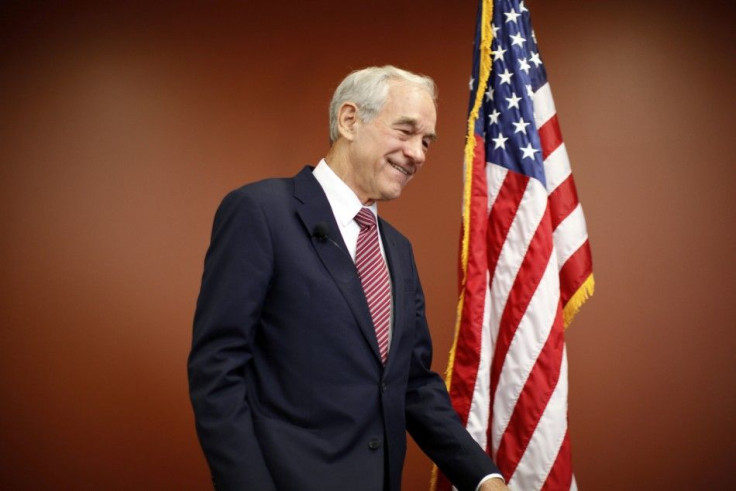Ron Paul 2012: The 'Revolution' Gathers Force, Media Cannot Shun Him Any Longer
Opinion

With convincing performances in Iowa and New Hampshire, Ron Paul has proved that he is here to stay. His momentum cannot go unnoticed anymore and whether the mainstream media likes it or not, it will be forced to write about him.
It is very clear from the recent media trend that Paul is getting more media space than before. You can find more media reports mentioning him now as a strong contender.
The media always feared discussing Ron Paul for their own reasons. He is not a candidate at all, he cannot beat President Obama, he is too extreme, his foreign policy is too alien -- these were some of the excuses. Now in the changed scenario, it is impossible to fully neglect him as a potential winner.
At the same time one cannot say that Ron Paul is getting due coverage yet. It looks like mainstream media is still shocked at his emergence as a strong contender for Republican nomination. So, one can still find more news reports questioning his electability than his possibility of winning the elections.
The media also has shied away from discussing the stances taken by Paul on various issues like non interventional foreign policy, legalizing medical marijuana and federal spending cuts. In many instances the serious issues raised by Paul during the campaign debates and discussions were sidelined by the media. They reportedly either changed the topic or ignored it in the reports.
One reason for this can be that mainstream media likes the pro-establishment and big corporations clearly fear the emergence of the Paul Revolution. They believe his strategies are not practical for the current world and are against their interest.
Another reason is that many of the issues raised by him are serious in nature and if opened up for discussion, might be dangerous to the existing system. For instance the Paul's debate remark on institutional racism was not continued in NBC debate during New Hampshire primaries. Whether it is establishment or media, they usually prefer certain things to remain covered if they fear they cannot handle it otherwise.
Ron Paul has a clear national and foreign policy and, if implemented, it has the potential to change the very dynamics of America as well as the world. They simply are scared of such a revolution that can bring in a drastic change, even if it is for the benefit of the country and world at large. This is one more reason that explains the reluctance of mainstream media in highlighting Paul's campaign.
Though Paul's stances look extreme when seen in the current context, they are very much practical and constitution-oriented in reality. Since these standpoints are something new and different from the present policies, it requires certain amount of explaining to understand them.
It looks like mainstream media in general are is averse to understanding them as well as making others discuss them. One could hardly find any in-depth debate or discussion on Paul's ideologies in the media.
In this scenario, it would be difficult for the Ron Paul Revolution to depend on mainstream media support to reach its message to the masses. So it inevitably has to rely on grass root campaigning and the Internet.
The success of Paul's campaign will depend on how many voters they can reach and explain his strategy to, because whoever could understand his vision seems to get influenced by it.
© Copyright IBTimes 2025. All rights reserved.






















